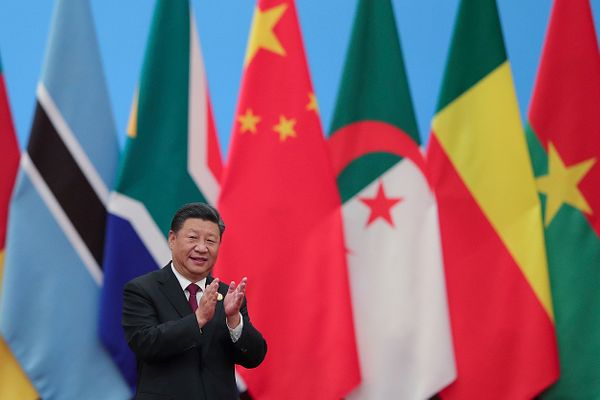Corporate debt levels in China have risen to sky high – so much so – that they can potentially destabilize Chinese economy. On Friday, Chinese regulators had to put a stop to trading of bonds issued by Evergrande – the country’s second largest real estate developer. Many experts are concerned that the firm will be unable to continue paying it’s debt obligations. This promotes a huge sell off by investors, overwhelming exchanges. This case is a broad reflection of the Chinese economy. It may look solid from the outside, but its internal structure is weak.
Actually, two major trust companies that had made loans to Evergrande had demanded an immediate repayment. This created panic amongst investors – who rushed to unload these bonds – some of which sold for as low as 26% of their face value.
Just a few days back, China Huarong Asset Management released a long-delayed earnings report showing it had lost $15.9 billion last year and that its debt-to-equity ratio at one point totaled an 1,333%.
As expected, Chinese state firms bailed Huarong out last month. This was done to avoid a major collapse that could have been catastrophic for the Chinese economy. Unfortunately for Evergrande, the same cards don’t seem to be on the table. Evergrande has been selling off it’s assets in a rush to raise cash needed to satisfy lenders.
Huarong has already sold more than half of its non financial subsidiaries. Being such a major Chinese company, it has now been reduced to selling of its non core assets to pay off it’s loans. It reflects poorly on the Chinese economy that it’s number 2 property company has been reduced to such a state.
The issue of unsustainable debt is not limited to big firms like Evergrande and Huarong. In 2019 and 2020, Chinese firms defaulted on more than $20 billion in debt, and analysts believe that 2021 is on pace to set a new record! This has turned the tide and now investors have a very negative view of investing in China.
Though China is well known to trap other countries under crippling debt through one sided loan agreements, it seems it’s government is unable to solve this debt crises back home. In fact, investors should be wary as Chinese accounting practices and reporting is highly questionable. Chinese firms are known to doctor their accounts to present a rosy picture to secure investments.
The truth is despite how China presents its state owned corporations, those are actually extremely inefficient. In its pursuit of public sector, China has ignored it’s private sector. We can see from the Alibaba case that China doesn’t have a balance when regulating private companies, it usually takes strict measures only after the situation has gone out of hand.
Chinese regulators need to understand that if they keep bailing out inefficient firms, they are diverting resources from those organizations that could make better use of them. This is hurting their economy. A country cannot move forward with favouritism.
Beijing’s increasing willingness to let firms default and go out of business, while painful in the short term, could be laying the groundwork for a stronger economy in the future. However, weak transparency requirements for onshore debt issuance make the real depth of the debt problem hard to discern.
The Chinese economy has been suffering from excessive non-financial corporate debt for a long time. It has a serious Zombie problem. As a result, China has a serious zombie problem. Across the country, there are probably tens of thousands zombie firms that are persistently making losses but are kept alive only by continuous bank loans and government subsidies.
According to the Bank for International Settlements, at the end of 2020, the total debt issued to non-financial corporations in China totalled 161% of the country’s GDP!
Additionally, they also need to understand that as the defaults increase, a banks ability to absorb losses also decreases. In July, China Guangfa Bank moved to freeze some of Evergrande’s assets out of fear that the company would be unable to satisfy a loan set to come due next March.
The case of Evergrande is particularly worrisome. Loans to real estate ventures make up a large share of the loan portfolios of Chinese banks. The what can be said about the loans being given to smaller companies? Morever, this reflects very poorly on the Chinese real estate sector. China needs to get off it’s high horse and understand that its overconfidence that it’s big companies cannot fail will be the final nail in it’s coffin.

Leave a Reply